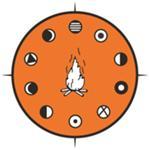KANESATAKE, QC, June 16, 2021 /CNW Telbec/ - The Mohawk Council of Kanesatake would like to issue the following statement following Quebec's openness towards the creation of a Mohawk Community Policing Service in Kanesatake.
The Mohawk Council of Kanesatake is both pleased and surprised with Quebec's Prime Minister and Public Security Minister's recent displays of openness in the media to actively work towards a tri-partite agreement with Kanesatake and the Federal Government in order to reinstate our Mohawk Community Policing Service.
Kanesatake has actively made policing one of its priorities in the last 16 years, as such, we welcome the creation of an official negotiation table. The much-needed movement on this very important file is essential to ensure a safe and prosperous future for all in our community.
Reminding Governments of their responsibilities towards peace and safety
The following human rights frameworks bestow on our societies a moral obligation and duty to protect its most vulnerable so that they can live in a safe and healthy environment.
The Canadian Charter of Rights and Freedoms states that :
Section 7 - Everyone has the right to life, liberty and security of the person Section 15 - Every individual is equal before and under the law and has the right to the equal protection and equal benefit of the law without discrimination and, in particular, without discrimination based on race, national or ethnic origin, colour, religion, sex, age or mental or physical disability.
The UN Declaration on the Rights of Indigenous People states that :
Article 7.1 - Indigenous individuals have the rights to life, physical and mental integrity, liberty and security of person.
Article 7.2 - Indigenous peoples have the collective right to live in freedom, peace and security as distinct peoples and shall not be subjected to any act of genocide or any other act of violence, including forcibly removing children of the group to an other group.
Article 21.1 - Indigenous peoples have the right, without discrimination, to the improvement of their economic and social conditions, including, inter alia, in the areas of education, employment, vocational training and retraining, housing, sanitation, health and social security.
Article 22.2 - States shall take effective measures and, where appropriate, special measures to ensure continuing improvement of their economic and social conditions. Particular attention shall be paid to the rights and special needs of indigenous elders, women, youth, children and persons with disabilities.
The American Declaration on the Rights of Indigenous People states that :
Article 30.1 -. Indigenous peoples have the right to peace and security.
Article 30.2 -. Indigenous peoples have the right to recognition and respect for their institutions for the maintenance of their organization and control of its communities and peoples.
Article 30.3 -. Indigenous peoples have the right to protection and security in situations or periods of internal or international armed conflict pursuant to international humanitarian law.
The AFNQL Declaration of the Rights of First Nations Children (2015) states that:
Article 16 - Our children and families, and the Nations and communities that serve them, have the right to adequately funded, community and Nation controlled, institutions and services, including those providing health care, education, recreation and social services.
Governments have a constitutional and fiduciary obligation to provide those necessary tools to First Nations communities, so that they can adequately protect their children, elders and members. Everyday that Canada and Quebec are in breach of these duties and responsibilities towards our members, they are opening themselves to potential future legal liabilities.
A different kind of Policing Service envisioned for Kanesatake
The Mohawk Council of Kanesatake has been attempting for the last 16 years to re- establish its policing services, keeping in mind the errors of the past so that they are not repeated. The only consistency from the governments has been the resistance to fund such a vital and fundamental service to our members which was faced by the present council repeatedly in the last 10 years.
The Mohawk Council of Kanesatake submitted a proposal (see attached) detailing the differences between the last policing service and this new one as to alleviate any concerns with regards to political interference as well as to the management and daily operations of such a service.
The community has been consulted on separate occasions (2009 and 2019) about policing, both consultations were in favor of re-establishing a Mohawk Community Policing Service, they were also adamant on the fact that the Sureté du Québec (S.Q.) are very inadequate in addressing the security concerns of members.
It's a fact that a Mohawk Community Policing Service will not have to navigate the same jurisdictional and political minefields that the S.Q. have in every one of their interventions. Our future service will thus be more focused on prevention, agile, more effective, proactive and will intervene in a much wider spectrum of situations.
A Mohawk Community Policing Service will effectively be able to enforce laws that the community accept and ratify, help protect our elders, children, address environment infractions, ensure the safety of economic developments, prevent land grabs, protect our heritage, and much more. Which the S.Q. cannot or will not do.
Next step -- Urging Governments to set-up a table
The Mohawk Council of Kanesatake is proactively designating a team to sit at the negotiation table and are available to start working on this monumental matter rapidly. The time has come and our call to action is now in showing solidarity for basic safety in our inherent unceded Territory.
In a spirit of peace, mutual understanding, and friendship
Niawenhkó:wa,
Grand Chief Serge Otsi Simon
SOURCE Assembly of First Nations of Quebec and Labrador

Press Relations: Ian Préfontaine, 514.943.7625, [email protected]

Share this article